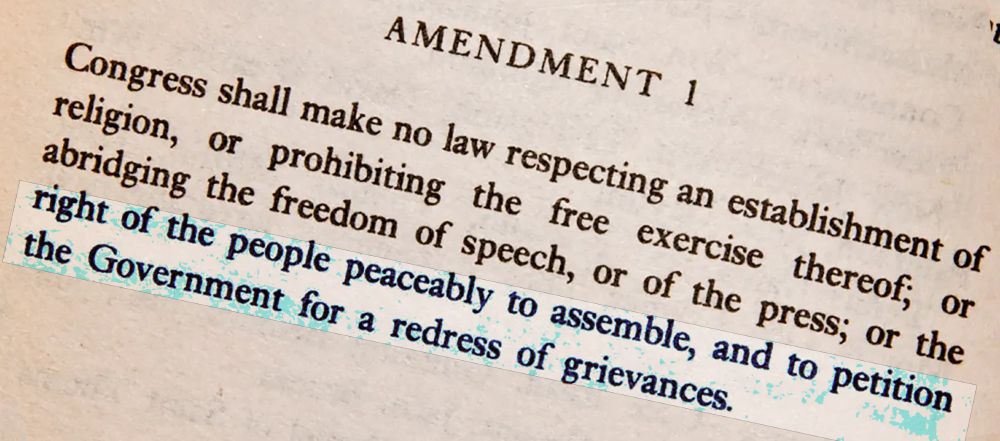![]()
Anti-Imperialism Sells
In under a month, Avatar has racked up nearly a billion dollars from outside the USA, bringing its total box office to $1.3 Bn+ at the time of writing. It will be the biggest box office earner of all time. Money talks, especially in Hollywood.
So what is being said, exactly?
One can look at Avatar and see all manner of things: 3-D, computer / human hybrid characters, elaborate worlds, floating rocks, flying lizards, guns and explosions, but that’s not what drives the film. What story is resonating around the world this month?
SPOILERS —
Please don’t read until you’ve actually seen Avatar for yourself.
Avatar is an idealized conflict, a pure conflict between the invaders (an earth corporation) and the indigenous (the Na’vi).
The Na’vi don’t want anything from the alien invaders. As is made clear, they were offered roads, but “they prefer mud.” This perfect rejection of all things alien keeps the conflict simple, straightforward and provides a moral clarity to the situation.
The earthlings are there to take the valuable rocks. That’s all that’s motivating their mission, and it is non-negotiable. Those in charge prefer to use a minimum of violent force, as that is politically easier to sell to the people back home. Atrocities are more work for the PR machines, but that doesn’t rule them out.
This conflict is analogous to the last few millenia of human “civilization.” Much about the Na’vi seems familiar to indigenous tribes here on earth. Much about the human mining enterprise seems familiar to what we know today as imperialism.
Writer/Director James Cameron takes it a step further and brings the conflict up to date. Lines like “shock and awe” and “fight terror with terror” pop up. The justifications used to demonize the Na’vi are heard on America’s airwaves today, demonizing humans half a world away. Race, religion, culture, skin color, that which divides us is exploited and played up.
While demonizing another species like the Na’vi may seem easier to pull off than racist or nationalist smears here on earth, 2010, Cameron has done something wonderful with his central plot. He bridges the gap between human and Na’vi by combining their DNA in the lab. The “Avatar” of the title achieves its own place in the (film) history books by offering the audience the means of jumping species over to the other side. We actually go over to the Na’vi side with the leading character Jake Sully.
As Jake Sully becomes more and more Na’vi, we can’t help but see his original employer as the villain. As Sully, who only controls the human/Na’vi hybrid, and is not actually the creature, becomes more and more native, we must conclude that the Na’vi are correct to resist the mining operation and the mercenaries. The indigenous resistance is legitimized, and we would do the same in their position.
Cameron is of course not the first person to craft such a story, but he has certainly taken it to new heights and shown it to a new generation that sorely needs to hear it. The moral lessons of Avatar are striking and severe.
With cinematic mastery Cameron escalates the conflict. The invaders are technologically superior, and their military arm is ruthless in the extreme. Willfully ignorant, racist and calculating, they plan on destroying the planet’s most holy site in order to demoralize the Na’vi. This plan will attempt to kill the planet’s living God, something the earth military force doesn’t believe is real, but the film’s audience sees that it actually exists. That attack is the “shock and awe” strategy, the “fight terror with terror” moment.
The earth force is full of such hubris and such a sense of invincibility that it’s a pleasure watching them get their asses kicked. They lose because they deserve to lose. They have no legitimate claim to what they seek (the planet’s mineral wealth), and no moral right to be there at all, not by force.
The spiritual side of the movie has moved a lot of people. Having the planet’s God take a side in the war was a risky choice that pays off in the film pretty well. I found it a bit like a cavalry saving the day weak spot, but Cameron did set it up. He made it plausible in the context of the world.
All in all, Avatar works. The two hours and forty minutes are justified. The payoffs are set up, and the loose ends are tied neatly. For a popcorn movie, Avatar is top notch entertainment. For a cultural experience (and despite shrieks from the fascist right) we do not often see the natives win over a technologically superior force. Not on earth, not in real life, it’s indeed a rarity.
I have met several people who have gone back for repeat viewings, some in both 2D and 3D to experience the difference. The naysayers can say what they will, but the numbers don’t lie. Audiences like Avatar, overwhelmingly, and they are voting with their wallets in the “free market” of our culture.
One laughable film review in The Weekly Standard, back on December 28th, attempted to squash the film amongst the paper’s target demographic.
John Podhoretz called his review, “Avatarocious, Another spectacle hits an iceberg and sinks.”
Ooops. Avatar avoided the iceberg on its way to the box office. I hear that foot in mouth disease is rampant on the right these days, and Podhoretz should go get himself checked out. He called the film both “anti-American” and “anti-human,” in his rant.
As for “American,” there is no America in the film, and the earth force is purely a mercenary/corporate entity. Is Podhoretz admitting that the U.S. acts in a mercenary fashion on the world stage? Is he copping to the central point Cameron has made? Rather than blaming the film for making an uncomfortable connection, perhaps some better analysis of America’s actions and motivations, its “foreign policy” is called for.
Podhoretz also seems to have missed that the main character is himself one of the earthlings, an “American” whom the film is allegedly against. It is this soldier “from the jarhead clan” who has the moral and spiritual awakening and who undergoes the central transformation of becoming an Avatar.
The film makes a moral argument that might does not make right, and the ability to go somewhere doesn’t give one the right to be there (sort of like International Law). These are simple and straightforward ideas which stand without unnecessary complexities.
In fact, these basic issues of right and wrong are constantly obfuscated in the corporate media. All we get there are the minutia, the official pronouncements, and never the moral clarity.
It is only when an official enemy power commits a transgression that a moral argument gets trotted out. Never are moral standards applied to one’s own nation’s actions and policies.
The beauty of the Avatar plot is that Jake Sully exists in both worlds, as both species, and he bridges the gap between the two sides. This is handled perfectly, much to the chagrin of propagandists like Podhoretz who wish for the message to fall flat and to fail. Avatar has not failed but has succeeded despite the system the film was produced in, despite the sniping of “critics” opposed to such content, and despite serial hot wars currently raging which are fueled by imperialistic aggression for the purpose of controlling valuable resources.
The overwhelming success of Avatar with audiences has actually given me some hope (not the plastic Obama brand of “hope” as substitute for moral policies). It is impossible to not get it. It is impossible to not accept that moral questions remain when people decide to take from others and to demonize them in order to achieve their desired “facts on the ground.”
Avatar is a timeless story, mythic, allegorical, and yet grounded to our actual history and to our current events. Perhaps art can go beyond imitating life and progress up to nudging it just a little in a better direction.
Joe Giambrone is the editor of The Political Film Blog on WordPress. He hopes to hit an iceberg and sink just a fraction of the depth James Cameron has plummeted. Send political/film articles to: polfilmblog at gmail.com.





























Related:
Palestinian protesters pose as Na’vi from “Avatar”
A Demonstrator dressed as a figure of the movie ‘Avatar’, shouts slogans against Israel’s separation barrier in the West Bank village of Bilin near Ramallah, Friday, Feb. 12, 2010. Israel says the barrier is needed for security, but Palestinians consider it a land grab. Opponents of Israel’s contentious separation barrier in the West Bank scored a long-awaited victory Thursday when the government began rerouting the enclosure to eat up less of a Palestinian village that has become a symbol of anti-wall protests and the site of frequent clashes.
Bernat Armangue / AP Photo
Director James Cameron interview on Charlie Rose
Protestors in Jerusalem also dress as Na’vi.